“The forest is not a resource for us. It is life itself,” – Evaristo Nugkuag Ikanan, an indigenous leader and ecologist.
Our Expert Group “Wild Foods, Biodiversity and Livelihood” with Non-Timber Forest Products Exchange Programme (NTFP-EP Asia) will work to consolidate traditional ecological knowledge about wild foods in Asia and bridge it with the relevant policy arenas to ensure wise, inclusive and impactful decision making in the areas of food security, poverty reduction and sustainable forest management.
Forests play a key role in climate regulation, and indigenous and forest communities have been recognized as the best forest guardians, achieving outcomes that are at least equivalent to those of government-funded protected areas. However, forests are so much more than a massive air-conditioner and a carbon storage facility.
Apart from providing water, soil protection and a place to live for animals, forests are also where we discovered foods and medicines. Many of the prescription drugs used in our healthcare, including antibiotics and cancer medications, are derived from nature. Bananas, cassava, coffee, cacao, vanilla, cashews and avocadoes all originate from the forest too.
These foods are well known and widely loved, but there are many more forest treasures most of us have never even heard of. Take, for instance, the pyap leaves from Cambodia or the dang sum herb from Vietnam or the pako fern from the Philippines, which are cherished and masterfully utilized by the traditional forest dwellers and indigenous peoples. They have been relying on wild foods for millennia, integrating their food practices with sustainable forest management.
For the forest-based communities, wild foods provide nutrition and resilience in times of food insecurity and carry a lot of cultural value. What is more, these food practices and traditions hold many sustainability lessons that could be employed to repair our food systems and step forward the implementation of the Sustainable Development Goals (SDGs).
Finding ways to add value and ensure sustainable use of wild foods could not only reduce poverty and vulnerability of indigenous and traditional communities, but also support the development, biodiversity and climate goals through sustainable land use and forest management.
This area has only recently started to receive attention and recognition and, because it spans forestry, agriculture, education, culture and many other fields, it is usually dispersed between different institutions and actors. Our new Expert Group aims to establish a collaborative platform for traditional ecological knowledge in Asia. This project will bring together practitioners, networks and organizations working in the area, consolidating knowledge exchange, collaboration and, ultimately, providing traditional ecological knowledge with a stronger voice and leverage.
Through field learning, dialogue and networking, the Expert Group will explore the biodiversity of wild foods in Asia, both flora and fauna, including restoration and rehabilitation of these resources. The group will look into and share the examples of the ecological knowledge of various indigenous and forest-based communities in Cambodia, India, Indonesia, Malaysia, the Philippines, Vietnam.
This project will facilitate and convene dialogues and knowledge-sharing activities at the regional level, engaging national and regional representatives from the forest and indigenous communities, government, science, civil society, and development agencies, creating an enabling environment for forest communities and indigenous peoples in Asia, going beyond conservation and expanding the understanding of the value of forests, especially wild foods, and traditional ecological knowledge and systems.
At present, the Expert Group is working on the development of country situation papers for India, Indonesia, Cambodia and Vietnam. These papers are about practices and policies on food security and resource management. The knowledge from the papers will be communicated through policy briefs too. An online information campaign on wild foods will be launched this June and run until May 2021. Featuring various multimedia, this campaign will raise awareness on wild foods and traditional food systems.
Finally, the Expert Group will launch a series of public webinars this year about Wild foods, traditional systems and tenure (July 2020), Wild foods and biodiversity (August 2020), and wild foods and livelihoods (September 2020). The webinar series will lead to a regional dialogue on the subject. All the events will be advertised through SIANI media channels.
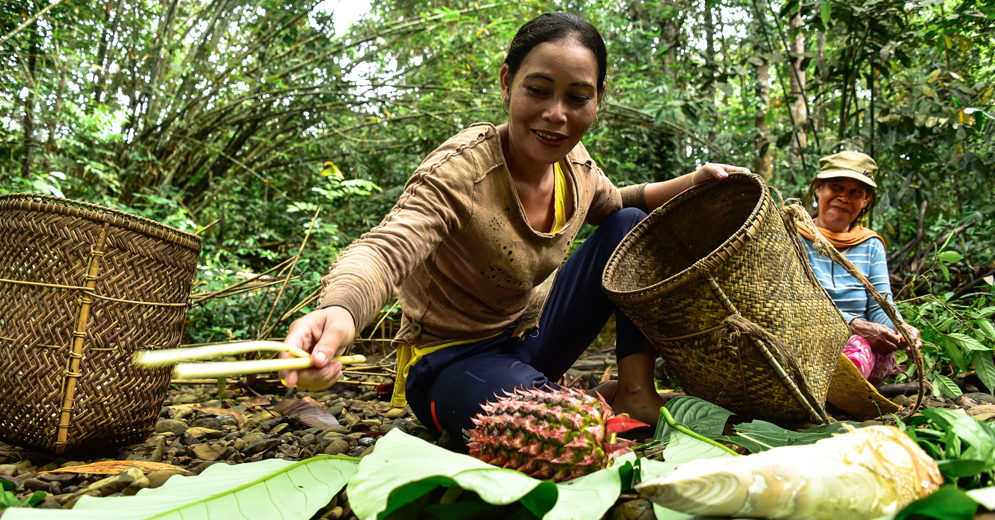
 Teddy Brawner Baguilat, Jr. is the President of the ICCA Consortium. He belongs to the Tuwali tribe of Ifugao and the Gaddang tribe of Nueva Vizcaya provinces in Northern Philippines. He has held various positions in government, including Mayor of Kiangan (1995-2000) and Governor of Ifugao (2001-2004; 2007-2010). From 2010-2019, he was a Congressman representing the lone district of Ifugao, championing the cause of all indigenous peoples in the Philippines. He chaired the Philippine Congress’ Committee on National Cultural Communities from 2010-2013 and was Vice Chairperson of the Committee on Indigenous Peoples from 2013-2016. He has proposed laws protecting the rights of indigenous peoples and promoting their culture, as well as laws on protection of the environment and bills against discrimination of marginalized sectors. He has spoken in various international conferences on ICCAs, conservation and heritage sites, human rights and indigenous cultures, emphasizing indigenous practices as key to overcoming current environmental and sustainability challenges worldwide.
Teddy Brawner Baguilat, Jr. is the President of the ICCA Consortium. He belongs to the Tuwali tribe of Ifugao and the Gaddang tribe of Nueva Vizcaya provinces in Northern Philippines. He has held various positions in government, including Mayor of Kiangan (1995-2000) and Governor of Ifugao (2001-2004; 2007-2010). From 2010-2019, he was a Congressman representing the lone district of Ifugao, championing the cause of all indigenous peoples in the Philippines. He chaired the Philippine Congress’ Committee on National Cultural Communities from 2010-2013 and was Vice Chairperson of the Committee on Indigenous Peoples from 2013-2016. He has proposed laws protecting the rights of indigenous peoples and promoting their culture, as well as laws on protection of the environment and bills against discrimination of marginalized sectors. He has spoken in various international conferences on ICCAs, conservation and heritage sites, human rights and indigenous cultures, emphasizing indigenous practices as key to overcoming current environmental and sustainability challenges worldwide.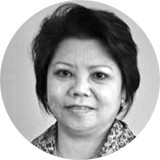 Doris Capistrano, PhD is part of the Board of Directors of Resilient Landscapes, a merger of the Center for International Forestry Research (CIFOR) and World Agroforestry Centre (ICRAF). They promote sustainable, innovative solutions to ensure integrated, multi-functional landscapes that are performing, productive and resilient. They help countries, communities and companies improve land management and livelihoods in sustainable and resilient ways. She was also Director of Forests and Governance of the Centre for International Forestry Research (CIFOR) and Visiting Professor in Forest and Conservation Policy of Wageningen University. She served as Ford Foundation’s Deputy Representative for India, Nepal, and Sri Lanka and Program Officer for Rural Poverty, Resources and Environment in Bangladesh. She previously taught Economics at the University of the Philippines Los Baños.
Doris Capistrano, PhD is part of the Board of Directors of Resilient Landscapes, a merger of the Center for International Forestry Research (CIFOR) and World Agroforestry Centre (ICRAF). They promote sustainable, innovative solutions to ensure integrated, multi-functional landscapes that are performing, productive and resilient. They help countries, communities and companies improve land management and livelihoods in sustainable and resilient ways. She was also Director of Forests and Governance of the Centre for International Forestry Research (CIFOR) and Visiting Professor in Forest and Conservation Policy of Wageningen University. She served as Ford Foundation’s Deputy Representative for India, Nepal, and Sri Lanka and Program Officer for Rural Poverty, Resources and Environment in Bangladesh. She previously taught Economics at the University of the Philippines Los Baños. Mathew John is the Managing Director of Last Forest Enterprises, a social enterprise incubated by Keystone Foundation, a civil society organization of which he is also a co-founder Director. Mathew;s background is in rural development, particularly administration and finance for rural development organizations and field projects. His interests are in enterprise development and organic certification for small growers and harvesters. He has varied experiences working on different projects in India as well as Bangladesh.
Mathew John is the Managing Director of Last Forest Enterprises, a social enterprise incubated by Keystone Foundation, a civil society organization of which he is also a co-founder Director. Mathew;s background is in rural development, particularly administration and finance for rural development organizations and field projects. His interests are in enterprise development and organic certification for small growers and harvesters. He has varied experiences working on different projects in India as well as Bangladesh.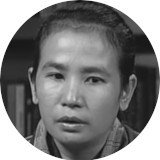
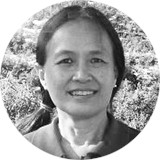 Miks Guia-Padilla is the Executive Director of AnthroWatch and the Board Chairperson of NTFP-EP Asia. She has been working alongside indigenous peoples and local communities on policy advocacy issues related to tenure, gender, health and environmental rights. She is also active in the Zero Extreme Poverty 2030 movement. Her background is in anthropology and gender studies.
Miks Guia-Padilla is the Executive Director of AnthroWatch and the Board Chairperson of NTFP-EP Asia. She has been working alongside indigenous peoples and local communities on policy advocacy issues related to tenure, gender, health and environmental rights. She is also active in the Zero Extreme Poverty 2030 movement. Her background is in anthropology and gender studies. Nonette Royo is a lawyer, a land rights rights specialist and a practitioner in assisting indigenous peoples and local community (IPLC) organizations to gain better tenure and in negotiating natural resources management rights. She is currently the Executive Director of The Tenure Facility in Stockholm. Her work in Indonesia, Philippines and other parts of the Southeast Asia and Melanesia spans 25 years supporting community collective land rights mapping and titling, negotiating other types of rights over land, resources and territories. Nonette helped design and implement innovative grants mechanisms and other technical support to IPLCs in forests, climate change, land use and biodiversity programs, including setting up of conflict resolution and mediation mechanisms from emerging body of evidence of effective guardianship of territory, in cases where rights and environmental protection are potentially compromised.
Nonette Royo is a lawyer, a land rights rights specialist and a practitioner in assisting indigenous peoples and local community (IPLC) organizations to gain better tenure and in negotiating natural resources management rights. She is currently the Executive Director of The Tenure Facility in Stockholm. Her work in Indonesia, Philippines and other parts of the Southeast Asia and Melanesia spans 25 years supporting community collective land rights mapping and titling, negotiating other types of rights over land, resources and territories. Nonette helped design and implement innovative grants mechanisms and other technical support to IPLCs in forests, climate change, land use and biodiversity programs, including setting up of conflict resolution and mediation mechanisms from emerging body of evidence of effective guardianship of territory, in cases where rights and environmental protection are potentially compromised. Maria Rydlund is a Senior Policy Adviser Tropical Forest at Swedish Society for Nature Conservation (SSNC)/Naturskyddsforeningen. She is an ecologist and has been working with tropical forest and indigenous peoples and local communities (IPLCs) since more than 20 years back. Policy and lobby work related to the underlying causes of deforestation and the key role of IPLCs are among her interests.
Maria Rydlund is a Senior Policy Adviser Tropical Forest at Swedish Society for Nature Conservation (SSNC)/Naturskyddsforeningen. She is an ecologist and has been working with tropical forest and indigenous peoples and local communities (IPLCs) since more than 20 years back. Policy and lobby work related to the underlying causes of deforestation and the key role of IPLCs are among her interests.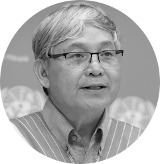 Prasert Trakansuphakon, PhD belongs to the Karen people in Thailand. He has been a leader and practitioner of social development among indigenous peoples in Thailand and Southeast Asia. His expertise comprises indigenous knowledge, natural resource management, in particular rotational farming, indigenous education of indigenous peoples. He holds a PhD in Sociology. He is presently Chairperson of Pgakenyaw (Karen) Association for Sustainable Development (PASD), Thailand.
Prasert Trakansuphakon, PhD belongs to the Karen people in Thailand. He has been a leader and practitioner of social development among indigenous peoples in Thailand and Southeast Asia. His expertise comprises indigenous knowledge, natural resource management, in particular rotational farming, indigenous education of indigenous peoples. He holds a PhD in Sociology. He is presently Chairperson of Pgakenyaw (Karen) Association for Sustainable Development (PASD), Thailand. Luu Hong Truong, PhD currently works at the Southern Institute of Ecology, Vietnam Academy of Science and Technology as its Director. He has done work on databasing biodiversity in southern Vietnam and has led numerous researches on botany, evolutionary biology, genetics and ecology. He is a member of NTFP-EP and works closely with NTFP-EP Vietnam.
Luu Hong Truong, PhD currently works at the Southern Institute of Ecology, Vietnam Academy of Science and Technology as its Director. He has done work on databasing biodiversity in southern Vietnam and has led numerous researches on botany, evolutionary biology, genetics and ecology. He is a member of NTFP-EP and works closely with NTFP-EP Vietnam. Grace Wong, PhD is a natural resource economist with an interest in understanding complexities of social, economic and ecological trade-offs in the intersection of development, socio-political processes and climate change. She has worked extensively throughout Southeast Asia and Latin America. Her current research is on ecosystem services and human wellbeing in dynamic forest frontiers, with a particular interest on power relations and equity in the distribution of benefits and risks from natural resource use and governance. She is a researcher at the Stockholm Resilience Centre.
Grace Wong, PhD is a natural resource economist with an interest in understanding complexities of social, economic and ecological trade-offs in the intersection of development, socio-political processes and climate change. She has worked extensively throughout Southeast Asia and Latin America. Her current research is on ecosystem services and human wellbeing in dynamic forest frontiers, with a particular interest on power relations and equity in the distribution of benefits and risks from natural resource use and governance. She is a researcher at the Stockholm Resilience Centre. Femy Pinto is the Executive Director of the Non-Timber Forest Products-Exchange Programme Asia (NTFP-EP Asia). Her background is in the social sciences and she holds a masters in international policy and international development, with 30 years of experience as a practitioner, manager and advocate of natural resources management and the development of non-timber forest products (NTFPs). She is engaged in policy advocacy work around indigenous peoples rights and access to natural resources, as well as civil society networking and institution building. Femy is the Expert Group leader of the Wild Foods, Biodiversity and Livelihood network.
Femy Pinto is the Executive Director of the Non-Timber Forest Products-Exchange Programme Asia (NTFP-EP Asia). Her background is in the social sciences and she holds a masters in international policy and international development, with 30 years of experience as a practitioner, manager and advocate of natural resources management and the development of non-timber forest products (NTFPs). She is engaged in policy advocacy work around indigenous peoples rights and access to natural resources, as well as civil society networking and institution building. Femy is the Expert Group leader of the Wild Foods, Biodiversity and Livelihood network. Jeremy Ironside, PhD works for the McKnight Foundation overseeing grantmaking to organizations which support indigenous/ethnic minority communities to protect their land and natural resource rights and managements systems in the face of rampant economic development in the region. His background is in sustainable agriculture and his interests include learning from traditional systems which combine the farm and the forest. He is also a trustee of NTFP-EP.
Jeremy Ironside, PhD works for the McKnight Foundation overseeing grantmaking to organizations which support indigenous/ethnic minority communities to protect their land and natural resource rights and managements systems in the face of rampant economic development in the region. His background is in sustainable agriculture and his interests include learning from traditional systems which combine the farm and the forest. He is also a trustee of NTFP-EP. Denise Margaret Matias, PhD is a research scientist in the research unit Biodiversity and People at ISOE Frankfurt. She received her Doctor in Agricultural Sciences degree at the University of Bonn for her research on forest honey gathering from wild giant honey bees (Apis dorsata) by indigenous Tagbanuas and continues this research with indigenous Higaonon in the Philippines. She is also working with nomadic herders in the Mongolian Steppe Ecosystem.
Denise Margaret Matias, PhD is a research scientist in the research unit Biodiversity and People at ISOE Frankfurt. She received her Doctor in Agricultural Sciences degree at the University of Bonn for her research on forest honey gathering from wild giant honey bees (Apis dorsata) by indigenous Tagbanuas and continues this research with indigenous Higaonon in the Philippines. She is also working with nomadic herders in the Mongolian Steppe Ecosystem. 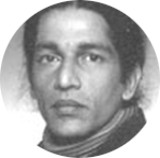 Madhu Ramnath is the Country Coordinator for NTFP-EP India. He has been engaged in the subject of wild forest foods in Asia and is also learning about traditional cultivated food plants. Other related areas of interest include nutrition, health, indigenous land tenure, nurseries and reforestation. He has authored several books, including the latest publication on wild foods, “Wild Tastes in Asia: Coming Home to the Forest for Food”.
Madhu Ramnath is the Country Coordinator for NTFP-EP India. He has been engaged in the subject of wild forest foods in Asia and is also learning about traditional cultivated food plants. Other related areas of interest include nutrition, health, indigenous land tenure, nurseries and reforestation. He has authored several books, including the latest publication on wild foods, “Wild Tastes in Asia: Coming Home to the Forest for Food”.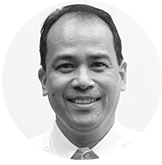 Ramon Razal, PhD is a professor and former Dean of the University of the Philippines Los Baños College of Forestry and Natural Resources where he teaches non-timber forest products and other forest products utilization courses. Ramon is also a trustee of NTFP-EP. He is author/co-author of various publications such as the “Non-Wood Forest Products of the Philippines” and “Wild Tastes in Asia: Coming Home to the Forest for Food.” He has done research and published articles on various NTFPs such as bamboo, resins and other chemical products from forest plants, with the view of improving livelihood opportunities for forest-based communities and enhancing the policy environment for accessing and marketing non-timber forest products.
Ramon Razal, PhD is a professor and former Dean of the University of the Philippines Los Baños College of Forestry and Natural Resources where he teaches non-timber forest products and other forest products utilization courses. Ramon is also a trustee of NTFP-EP. He is author/co-author of various publications such as the “Non-Wood Forest Products of the Philippines” and “Wild Tastes in Asia: Coming Home to the Forest for Food.” He has done research and published articles on various NTFPs such as bamboo, resins and other chemical products from forest plants, with the view of improving livelihood opportunities for forest-based communities and enhancing the policy environment for accessing and marketing non-timber forest products.
 The ASEAN Centre for Biodiversity (ACB), established in 2005, is ASEAN’s response to the challenge of biodiversity loss. It is an intergovernmental organization that facilitates cooperation and coordination among the ten ASEAN Member States (AMS) and with regional and international organizations on the conservation and sustainable use of biological diversity, and the fair and equitable sharing of benefits arising from the use of such natural treasures.
The ASEAN Centre for Biodiversity (ACB), established in 2005, is ASEAN’s response to the challenge of biodiversity loss. It is an intergovernmental organization that facilitates cooperation and coordination among the ten ASEAN Member States (AMS) and with regional and international organizations on the conservation and sustainable use of biological diversity, and the fair and equitable sharing of benefits arising from the use of such natural treasures.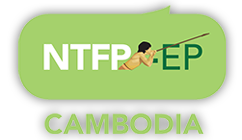 NTFP-EP Cambodia is a local Non-Government Organization based in Phnom Penh. Since its establishment in 1996, it has played a critical role in helping indigenous people secure their rights to their land and natural resources. NTFP-EP Cambodia recognizes the vital importance of preserving the cultural heritage of indigenous peoples, often inextricably linked with their lands and forests. It is currently present in 10 provinces and continually expands its network in Cambodia. NTFP-EP Cambodia is focused on providing its members support through research and advocacy for policy, capacity building towards sustainability of resources and organizations and market positioning.
NTFP-EP Cambodia is a local Non-Government Organization based in Phnom Penh. Since its establishment in 1996, it has played a critical role in helping indigenous people secure their rights to their land and natural resources. NTFP-EP Cambodia recognizes the vital importance of preserving the cultural heritage of indigenous peoples, often inextricably linked with their lands and forests. It is currently present in 10 provinces and continually expands its network in Cambodia. NTFP-EP Cambodia is focused on providing its members support through research and advocacy for policy, capacity building towards sustainability of resources and organizations and market positioning.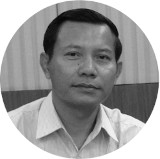 Sim Buntheoun is the Country Programme Manager of NTFP-EP Cambodia. He has over 20 years of experience in community based work, participatory research, capacity building, networking and advocacy. He was the first Country Director of GERES in Southeast Asia, working with programs in Cambodia and Myanmar in renewable energy, climate change mitigation and adaptation and sustainable forest management. He has also worked previously with the Learning Institute, Oxfam GB, Oxfam America and the Fisheries Action Coalition Team (FACT). Bunthoeun is also a trained nurse and has worked at the Thai-Cambodia border in the early 90s before he became a community fisheries organizer around the Tonle Sap. Since then, he has built a solid progressive work and experience in community-based natural resources management.
Sim Buntheoun is the Country Programme Manager of NTFP-EP Cambodia. He has over 20 years of experience in community based work, participatory research, capacity building, networking and advocacy. He was the first Country Director of GERES in Southeast Asia, working with programs in Cambodia and Myanmar in renewable energy, climate change mitigation and adaptation and sustainable forest management. He has also worked previously with the Learning Institute, Oxfam GB, Oxfam America and the Fisheries Action Coalition Team (FACT). Bunthoeun is also a trained nurse and has worked at the Thai-Cambodia border in the early 90s before he became a community fisheries organizer around the Tonle Sap. Since then, he has built a solid progressive work and experience in community-based natural resources management. NTFP-EP India works among several tribal communities, developing and implementing local initiatives, while respecting the integrity of cultural traditions. The shared goal of the partners of NTFP-EP is to empower forest-based communities to sustainably use and manage forest resources. The network is striving to engage with many more indigenous communities and NTFP issues and build a holistic view of indigenous people and the forests. The network is striving to engage with many more indigenous communities and NTFP issues to build a holistic view of indigenous peoples and the forests.
NTFP-EP India works among several tribal communities, developing and implementing local initiatives, while respecting the integrity of cultural traditions. The shared goal of the partners of NTFP-EP is to empower forest-based communities to sustainably use and manage forest resources. The network is striving to engage with many more indigenous communities and NTFP issues and build a holistic view of indigenous people and the forests. The network is striving to engage with many more indigenous communities and NTFP issues to build a holistic view of indigenous peoples and the forests.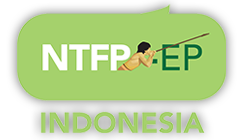 NTFP-EP Indonesia is a network of cooperation between civil society organizations and indigenous and local community-based community organizations based on non-timber forest products in Southeast and South Asia. Together with local and indigenous communities we work to strengthen the capacity of communities, especially non-timber forest products for sustainable management of natural resources.
NTFP-EP Indonesia is a network of cooperation between civil society organizations and indigenous and local community-based community organizations based on non-timber forest products in Southeast and South Asia. Together with local and indigenous communities we work to strengthen the capacity of communities, especially non-timber forest products for sustainable management of natural resources. Jusupta Tarigan is the Executive Director of NTFP-EP Indonesia. He is a forestry and livelihood specialist with more than 18 years of professional experience in Indonesia. His work, including both research and development, has focused on identifying and developing integrated development approaches that enable local stakeholders to sustainably manage local resources to meet both rural communities’ livelihood objectives and government environmental goals. Building viable partnerships of farmers, non-government organizations (NGOs), government agencies and private sector enterprises has been a key component of this successful work.
Jusupta Tarigan is the Executive Director of NTFP-EP Indonesia. He is a forestry and livelihood specialist with more than 18 years of professional experience in Indonesia. His work, including both research and development, has focused on identifying and developing integrated development approaches that enable local stakeholders to sustainably manage local resources to meet both rural communities’ livelihood objectives and government environmental goals. Building viable partnerships of farmers, non-government organizations (NGOs), government agencies and private sector enterprises has been a key component of this successful work.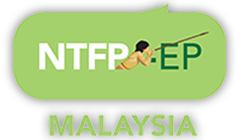 NTFP-EP Malaysia is based in Miri, Sarawak. Since its establishment in 2006, NTFP-EP Malaysia has continually forged partnerships not only with communities but also organizations and relevant state government representatives working in these communities. Their work is focused on reviving and building capacities of partner indigenous communities. Themes such as subsistence, community development planning, community-based livelihoods, community-based conservation, indigenous foods and rights and culture remain at the heart of NTFP-EP Malaysia.
NTFP-EP Malaysia is based in Miri, Sarawak. Since its establishment in 2006, NTFP-EP Malaysia has continually forged partnerships not only with communities but also organizations and relevant state government representatives working in these communities. Their work is focused on reviving and building capacities of partner indigenous communities. Themes such as subsistence, community development planning, community-based livelihoods, community-based conservation, indigenous foods and rights and culture remain at the heart of NTFP-EP Malaysia.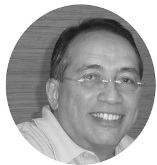 Andrew Aeria is the Board Chairperson of NTFP-EP Malaysia and is currently its interim Executive Director. His background is in political sciences and his research interests include economic development, human rights, the politics of development and poverty and inequality.
Andrew Aeria is the Board Chairperson of NTFP-EP Malaysia and is currently its interim Executive Director. His background is in political sciences and his research interests include economic development, human rights, the politics of development and poverty and inequality.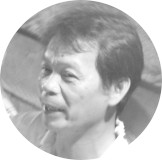 Dominic Langat is the community development coordinator of NTFP-EP Malaysia. He has years of solid experience working with the Penan communities in Sarawak, Malaysia in community organizing, policy advocacy, and project implementation of conservation, rainforestation, research and restoration and rehabilitation of non-timber forest products.
Dominic Langat is the community development coordinator of NTFP-EP Malaysia. He has years of solid experience working with the Penan communities in Sarawak, Malaysia in community organizing, policy advocacy, and project implementation of conservation, rainforestation, research and restoration and rehabilitation of non-timber forest products.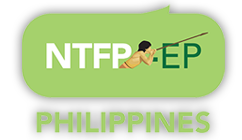 NTFP-EP Philippines is a collaborative network of non-government, community-based and peoples’ organizations working towards the empowerment of forest-dependent communities to strengthen, develop and promote non-timber forest products (NTFP)-based forest management strategies that are sustainable, culturally-appropriate and gender responsive. Their programs are on livelihood needs of forest dependent communities and on NTFP development in the context of sustainable tropical forest management.
NTFP-EP Philippines is a collaborative network of non-government, community-based and peoples’ organizations working towards the empowerment of forest-dependent communities to strengthen, develop and promote non-timber forest products (NTFP)-based forest management strategies that are sustainable, culturally-appropriate and gender responsive. Their programs are on livelihood needs of forest dependent communities and on NTFP development in the context of sustainable tropical forest management. Ruth Canlas is the Executive Director of NTFP-EP Philippines. She has more than 20 years of social development work experience with various sectors – students, workers, farmers and indigenous peoples. Her expertise is in the areas of program management, organizational development, financial management and enterprise development, including business planning. She earned her Management Engineering degree from the Ateneo de Manila and her MBA degree from the University of the Philippines Diliman. She is the Coordinator of the Philippine program of NTFP-EP since 2008. Under her leadership, NTFP-EP in the Philippines has grown organizationally and has expanded its work to more communities.
Ruth Canlas is the Executive Director of NTFP-EP Philippines. She has more than 20 years of social development work experience with various sectors – students, workers, farmers and indigenous peoples. Her expertise is in the areas of program management, organizational development, financial management and enterprise development, including business planning. She earned her Management Engineering degree from the Ateneo de Manila and her MBA degree from the University of the Philippines Diliman. She is the Coordinator of the Philippine program of NTFP-EP since 2008. Under her leadership, NTFP-EP in the Philippines has grown organizationally and has expanded its work to more communities.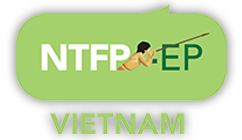 NTFP-EP Vietnam is based in Ho Chi Minh City and carries out work in the thematic areas of conservation, policy advocacy, sustainable community livelihoods, conservation and indigenous food and health. NTFP-EP Vietnam works closely with its facilitator organization, the Southern Institute of Ecology (SIE) and other partners in forwarding the inclusion of several nature reserves, like the Kien Luong under Vietnam’s new system of protected areas. It has actively worked in the promotion of continued sustainable use of resources in Nui Chua National Park and Ta-kou Natural Reserve. In pursuit of pushing for effective partnerships, it has led the construction of an eco-cultural museum through collaboration with local authorities and BothENDS. Current projects include conserving biodiversity and improving livelihood of ethnic minorities in protected areas in the country.
NTFP-EP Vietnam is based in Ho Chi Minh City and carries out work in the thematic areas of conservation, policy advocacy, sustainable community livelihoods, conservation and indigenous food and health. NTFP-EP Vietnam works closely with its facilitator organization, the Southern Institute of Ecology (SIE) and other partners in forwarding the inclusion of several nature reserves, like the Kien Luong under Vietnam’s new system of protected areas. It has actively worked in the promotion of continued sustainable use of resources in Nui Chua National Park and Ta-kou Natural Reserve. In pursuit of pushing for effective partnerships, it has led the construction of an eco-cultural museum through collaboration with local authorities and BothENDS. Current projects include conserving biodiversity and improving livelihood of ethnic minorities in protected areas in the country. Trinh Thi My Dung is the Country Facilitator for NTFP-EP Vietnam. She facilitates the NTFP program in the country with participation of about 100 indigenous communities who consider wild foods as an important part of their lives.
Trinh Thi My Dung is the Country Facilitator for NTFP-EP Vietnam. She facilitates the NTFP program in the country with participation of about 100 indigenous communities who consider wild foods as an important part of their lives.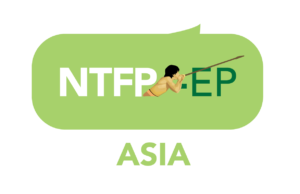 NTFP-EP Asia is the regional office of the Non-Timber Forest Products – Exchange Programme (NTFP-EP). The NTFP-EP is a collaborative network of over 60 non-governmental organizations and community-based organizations working with forest-based communities to strengthen their capacity in the sustainable management of natural resources in Cambodia, India, Indonesia, Malaysia, the Philippines and Vietnam. NTFP-EP Asia office is based in Manila.
NTFP-EP Asia is the regional office of the Non-Timber Forest Products – Exchange Programme (NTFP-EP). The NTFP-EP is a collaborative network of over 60 non-governmental organizations and community-based organizations working with forest-based communities to strengthen their capacity in the sustainable management of natural resources in Cambodia, India, Indonesia, Malaysia, the Philippines and Vietnam. NTFP-EP Asia office is based in Manila.  Robin Bustamante is NTFP-EP Asia’s Communications and Knowledge Management Officer. He joins the Expert Group as part of its project team, providing technical and communications support to the Expert Group.
Robin Bustamante is NTFP-EP Asia’s Communications and Knowledge Management Officer. He joins the Expert Group as part of its project team, providing technical and communications support to the Expert Group.